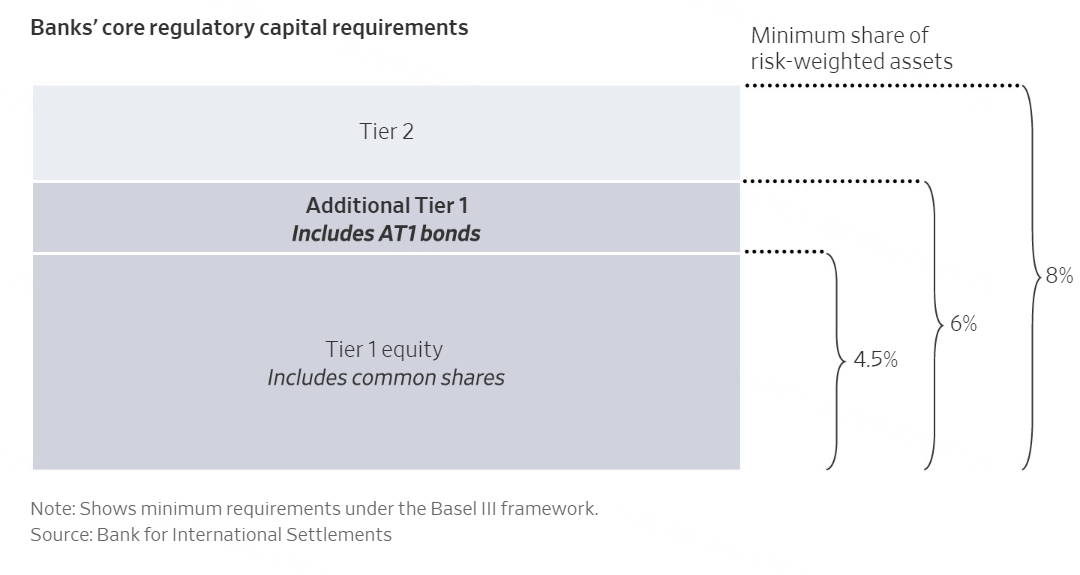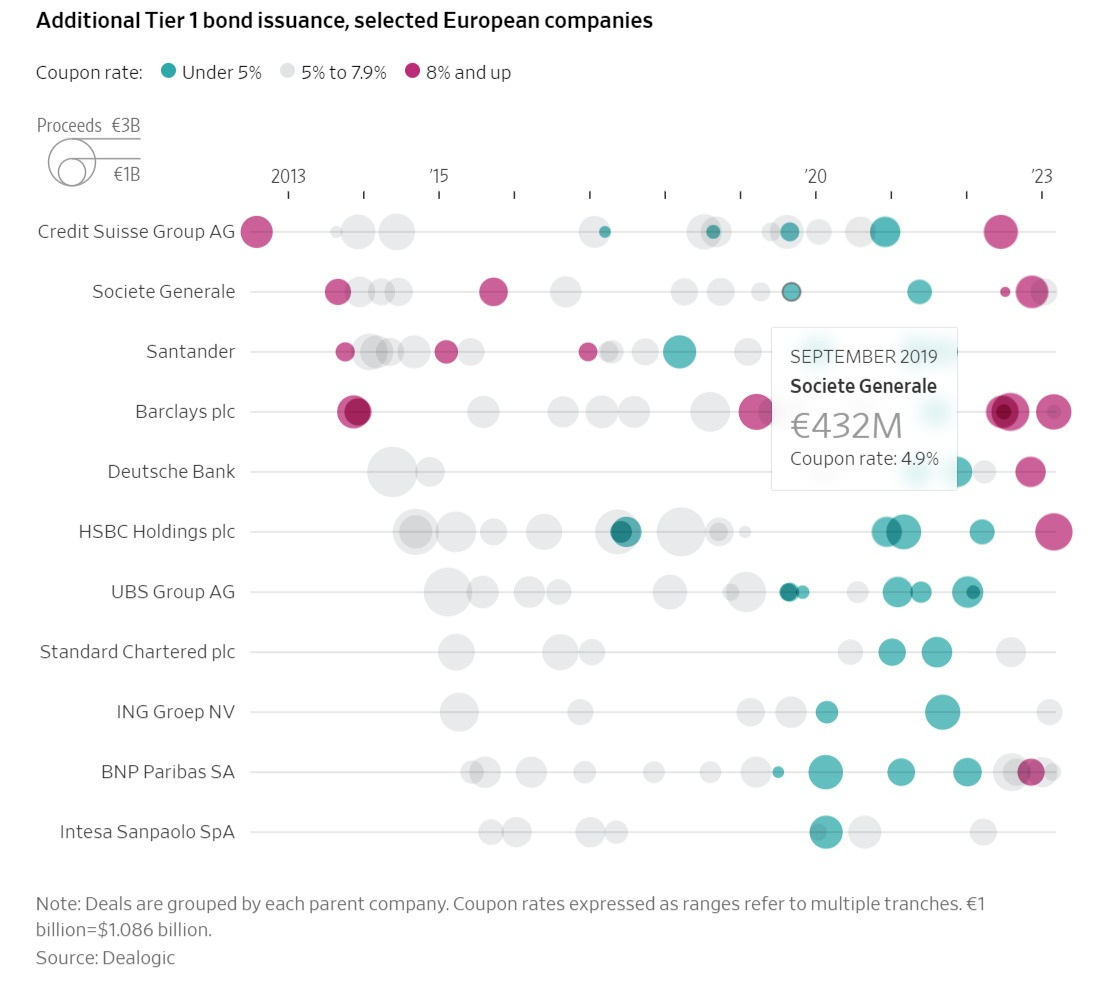Swiss regulators announced on March 19 a wipeout of more than $17 billion of Credit Suisse Group AG's additional Tier 1 bonds, or AT1s, shocking investors as shareholders were paid out before some bondholders. AT1 bonds deliver higher yields than many comparable assets, which makes them attractive to investors willing to take the risk.
AT1 bonds are popular among European banks as a way to build up safety buffers. Following the 2008 financial crisis, many countries in Europe signed on to a regulatory framework called Basel III, under which they passed laws requiring large banks to maintain a financial cushion for protection during a downturn.
This capital buffer is grouped into two "tiers" and must meet minimum levels in proportion to banks' assets when adjusted for risk. Tier 1 capital is made up mainly of equity, while Tier 2 capital can be made up of other securities. AT1 bonds are considered in a distinct category of Tier 1 instruments and can make up a portion of banks' core regulatory capital requirements.
While AT1s pay high interest to bondholders, their mechanics can make them a risky investment.
As with traditional bonds, issuers of AT1s make regular interest payments to investors. But AT1s have triggers that allow the issuing bank to convert, reduce or completely erase the bond’s principal value in order to preserve its Tier 1 capital.
AT1s have different trigger mechanisms depending on how they are set up. One such mechanism is to tie the trigger to a bank’s equity relative to its risk-weighted assets. If this capitalization level dips below a preset threshold, the bank may convert the bond to shares. Converting the bond to equity eliminates the bank’s liabilities on the AT1.
Another mechanism banks can use with AT1s is to write down or write off the value of the bonds. This removes the bank’s liabilities on the AT1.
Either mechanism helps boost bank capital. It can also help absorb some of the costs of the bank's failure or sale, as happened at Credit Suisse.
One risk associated with AT1s is that regulators have the authority to convert the bonds to equity or reduce the value of the bonds. In UBS Group AG's emergency takeover of Credit Suisse, Swiss regulators stepped in and made the decision to write off about 16 billion Swiss francs, or about $17 billion, in AT1 bonds.
Credit Suisse is just one European bank to have issued AT1s in recent years, according to data from research firm Dealogic.


